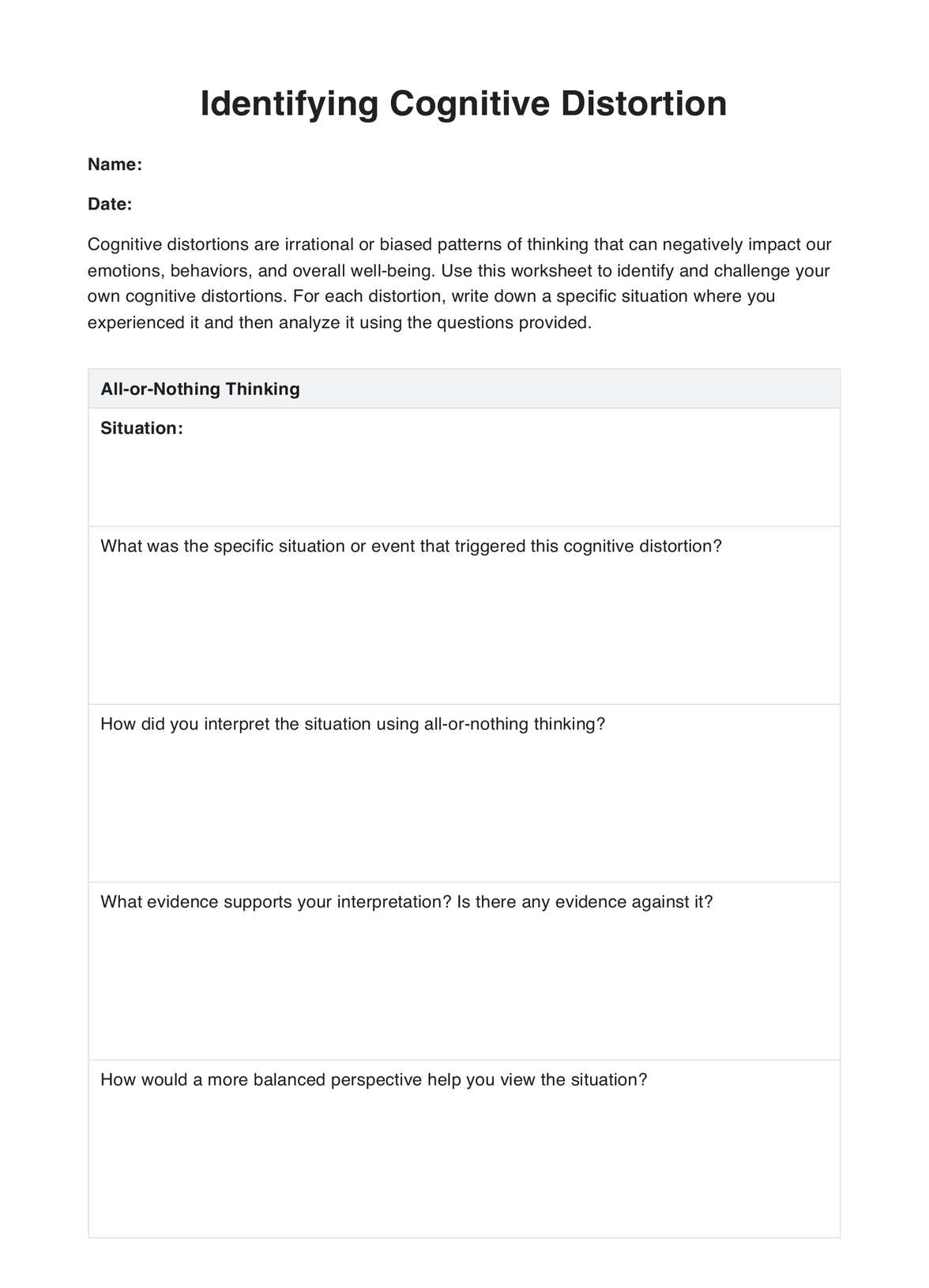Mental health professionals and individuals seeking to understand better thought patterns can benefit from using sources.

Download our Cognitive Distortions PDF template to help your clients recognize common irrational thinking patterns and shift towards healthier ways of thinking.
Mental health professionals and individuals seeking to understand better thought patterns can benefit from using sources.
Common cognitive distortions include all-or-nothing thinking, mental filters, assigning blame, and control fallacies. These distorted thoughts can hurt an individual's emotions and behaviors.
Cognitive distortions PDFs can be used during therapy sessions, as a self-help tool, or as a resource for mental health education. They can also be used with other cognitive therapies, such as mood therapy and cognitive restructuring.
EHR and practice management software
*No credit card required
Free
$0/usd
Unlimited clients
Telehealth
1GB of storage
Client portal text
Automated billing and online payments